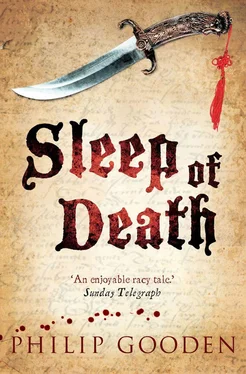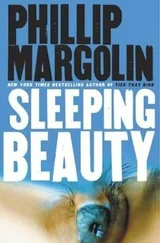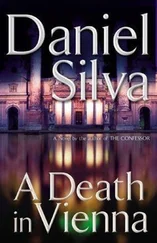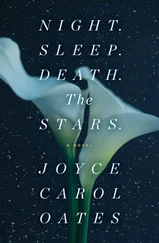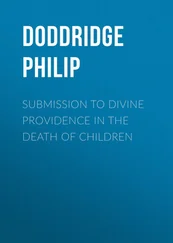Philip Gooden - Sleep of Death
Здесь есть возможность читать онлайн «Philip Gooden - Sleep of Death» весь текст электронной книги совершенно бесплатно (целиком полную версию без сокращений). В некоторых случаях можно слушать аудио, скачать через торрент в формате fb2 и присутствует краткое содержание. Год выпуска: 0101, ISBN: 0101, Издательство: Constable & Robinson, Жанр: Исторический детектив, на английском языке. Описание произведения, (предисловие) а так же отзывы посетителей доступны на портале библиотеки ЛибКат.
- Название:Sleep of Death
- Автор:
- Издательство:Constable & Robinson
- Жанр:
- Год:0101
- ISBN:9781472104311
- Рейтинг книги:5 / 5. Голосов: 1
-
Избранное:Добавить в избранное
- Отзывы:
-
Ваша оценка:
- 100
- 1
- 2
- 3
- 4
- 5
Sleep of Death: краткое содержание, описание и аннотация
Предлагаем к чтению аннотацию, описание, краткое содержание или предисловие (зависит от того, что написал сам автор книги «Sleep of Death»). Если вы не нашли необходимую информацию о книге — напишите в комментариях, мы постараемся отыскать её.
Sleep of Death — читать онлайн бесплатно полную книгу (весь текст) целиком
Ниже представлен текст книги, разбитый по страницам. Система сохранения места последней прочитанной страницы, позволяет с удобством читать онлайн бесплатно книгу «Sleep of Death», без необходимости каждый раз заново искать на чём Вы остановились. Поставьте закладку, и сможете в любой момент перейти на страницу, на которой закончили чтение.
Интервал:
Закладка:
‘He had locked himself inside his orchard. It was where he used to go for privacy in the afternoon. Nobody else could get in. The servant had to climb over the wall. He found Sir William’s body.’
‘And then the widow married the brother?’
‘Very soon afterwards.’
‘I’ve heard that before somewhere. The death in the orchard then the marriage to the brother. Something you were saying. .’
“ ‘The funeral baked meats did coldly furnish forth the marriage tables.’ ”
‘Not that. I have it! I always remember what you say. Something about a play.’
‘Yes, I know the play,’ I said, wearying of our encounter.
I made my way back over the river by the Bridge. A walk would clear my head after the afternoon’s performance in the Globe and the subsequent performance in Nell’s crib. It was the early evening. There were few people on the Bridge compared to the middle of the day, and most of them were probably returning, like myself, from their pleasures in the southern quarters of our great town.
I am a player. I am used to being watched, and like most players aware of others’ eyes without seeming to be. I was about halfway across the river when the nape of my neck prickled. This has long been an infallible sign that someone is gazing hard at me from behind. I stopped by the building that was once a chapel (it is now a warehouse) and pretended to fiddle with my points. In truth, I had fastened them negligently as I was leaving Nell and they needed tightening. While I was doing this, and feigning irritation with the errant laces, I cast covert glances down between the houses that lined the bridge. A shopkeeper closing up for the day. A beggar swinging on his crutches. A fat, respectable-looking citizen who had most probably been about unrespectable business on the other side of the water. In addition, a knot of gallants was making its noisy way after me; one of them shouted an obscenity at a matron walking in the opposite direction. She pretended not to hear. I started walking again.
Within a few dozen yards I received the same sensation in the back of my neck. I felt angry. Convinced that I was being followed, my natural instinct was to face about and confront the man. But I could not turn round or even stop again without alerting whoever was behind me, and since the only advantage I possessed was that he didn’t know that I knew he was there, I schooled myself against this. I suspected the beggar. As a class, hardly one of them is what he seems. As for his crutches, even if genuinely required, they were no bar to rapid movement. I have seen those fellows swing through the air when occasion called, their legs and sticks a whirring blur. At the far end of the Bridge I turned left into Thames Street, without changing my speed, and giving the impression of one who has a destination at the end of the working day but is in no especial hurry to arrive there. The south side of Thames Street is pierced by several alleys and crooked passages that run down towards the river. I listened hard for tell-tale footsteps after me, or more precisely for the rhythmic thud of crutches, but the street, though largely empty, still contained passers-by and the occasional grating handcart and I was unable to detect anything. I did not glance round.
After I’d walked the better part of a quarter of a mile — the prickling sensation remaining with me and my neck all this while, though slightly diminished — I turned down the wide slope that leads to Paul’s Wharf. Once round the corner I checked to make sure that nobody was hard on my heels, then ran direct for the river. I covered the distance in a few seconds. The principal pier here is an imposing structure, the biggest landing place on this stretch, with stairs in one corner running down into the water at low tide. To the west side are the remains of an earlier erection that evidently proved inadequate to growing city trade, and has lain unused for many years. The wooden stanchions and cross-pieces of this pier are fractured. The planking where barrels and bales were once piled up is rotten and holed or altogether missing. It was low tide and I jumped from the street end of the main jetty onto the shingle. A couple of individuals were standing at the end of the pier but I do not believe they even turned round as I landed on the slippery pebbles. Crouching slightly, I made my way at a rapid walk to the shelter of the old pier, and slipped among the forest of posts that supported it.
The whole thing, from turning down towards Paul’s Wharf to my concealment under the old pier, had taken less than half a minute. From my point of vantage I was able to see the top of the sloping way to Thames Street and, beyond that, the stone base of Paul’s on which the great steeple had once stood. I waited. I drew back a little into the shadows and surveyed my hiding-place. There was a stench of river, to which, country-born and bred, I am not yet hardened. Pockets of light admitted themselves through the gaps in the planks over my head. Dead fish glinted at the bottom of the slimy piles, human turds had been left marooned by the departing tide, as had cartwheels and baskets, clothing and bed-hangings, fragments of rope and bottles, a portion of all the detritus of our great city. There was even a chest with a shiny clasp. But it was open and empty. Some of this truck would be gathered up as the tide rose but, when it fell again, more and fresh rubbish would be left. So it goes.
I turned back to the scene beyond my hiding-place. There was nobody on the new pier, apart from the men at the far end who were still gazing across the river. No sign of the beggar with his crutches. Perhaps I’d been mistaken when I had thought I was being followed. But then I saw that the two men at the pier’s end were in fact three, and that the third who was now thanking them and walking away was the fat, respectable-looking citizen that I had glimpsed on London Bridge. He had been questioning them, evidently. ‘Did you see a young man come down this way, black-haired, in blue and russet? Bright blue? You couldn’t have missed him?’ ‘No sir, we’ve been watching the river, we’ve seen no one.’
But I am inventing this exchange. I have no idea whether the respectable citizen said this or anything like it to the two loiterers by the water. What I do know is that my cit strolled back on the side of the new pier nearest to where I was crouched under the old one, and that on his smooth face was a mixture of bafflement and irritation. The sort of expression that would fasten itself on your face if you too had been pursuing someone and they had given you the slip. He paused and looked about, seeming to interrogate the air. Was that where I had gone? Into thin air? His eyes swept the underside of the old pier and I could almost see him admit, entertain and then dismiss — in the space of an instant — the idea that I had gone to ground underneath that filthy structure. He walked on, paused once more and looked back, then vanished up the slope into Thames Street.
I waited. I wasn’t sure whether he might not have seen me and be waiting for me to re-emerge so that he could pick up the trail once more. I wasn’t even sure that it was the same individual that I had glimpsed on London Bridge. If not, then he was an innocent man about his business on an autumn evening, and my imagination was away on business of its own. Nevertheless I waited until the two loiterers had themselves abandoned their station at the end of the pier. Now I was alone on the scene. A chill wind ruffled the water. The houses on the other side of the river and on the Bridge downstream were turning into dark shapes, pierced here and there by a tiny glimmer of light.
I shivered. There is no moment so lonely as the first breath of evening, when business is done and pleasure’s distractions not yet started. Under my hand I felt a slimy wooden post. Unless the old jetty was pulled down it would collapse soon of its own accord. On the stone base of St Paul’s not far from me there once stood a great steeple shooting hundreds of feet into the air. Many years before, in the early days of our great Queen’s reign, lightning had destroyed in a moment what men had laboured so long to build. Now the stone stump of the steeple stands as a monument to the temporality of all human things. Monuments, too, have their span. In time, the church would go, perhaps to be replaced by something else. The old pier which was sheltering me must crumble, and that in short time too. Even the great Globe Playhouse, our shining white building on the far bank, will fall one day to unremembered ruin.
Читать дальшеИнтервал:
Закладка:
Похожие книги на «Sleep of Death»
Представляем Вашему вниманию похожие книги на «Sleep of Death» списком для выбора. Мы отобрали схожую по названию и смыслу литературу в надежде предоставить читателям больше вариантов отыскать новые, интересные, ещё непрочитанные произведения.
Обсуждение, отзывы о книге «Sleep of Death» и просто собственные мнения читателей. Оставьте ваши комментарии, напишите, что Вы думаете о произведении, его смысле или главных героях. Укажите что конкретно понравилось, а что нет, и почему Вы так считаете.
